
Below are some past expeditions featured on the OceanExplorer.NOAA.gov website that are related to hydrothermal vents and submarine volcanoes.
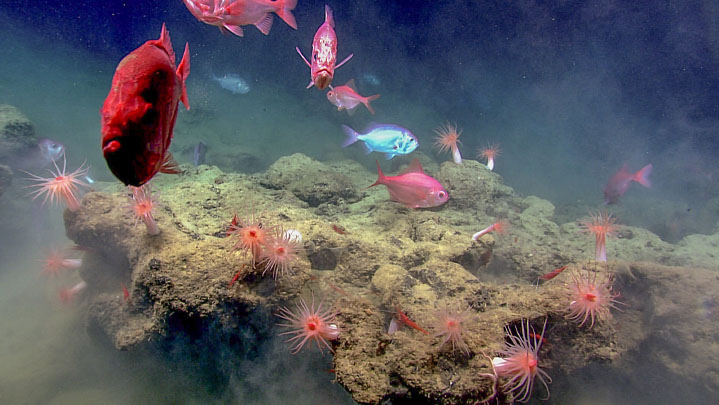
May through August 2022, NOAA and partners conducted Voyage to the Ridge 2022, a series of three telepresence-enabled ocean exploration expeditions on NOAA Ship Okeanos Explorer that included mapping operations and remotely operated vehicle dives to collect baseline information about unexplored and poorly understood deepwater areas of the Charlie-Gibbs Fracture Zone, Mid-Atlantic Ridge (MAR), and Azores Plateau. Along the MAR, spectacular hydrothermal vents may form where magma provides heat as it rises to the seafloor. These vents are known to support diverse chemosynthetic communities.
Read more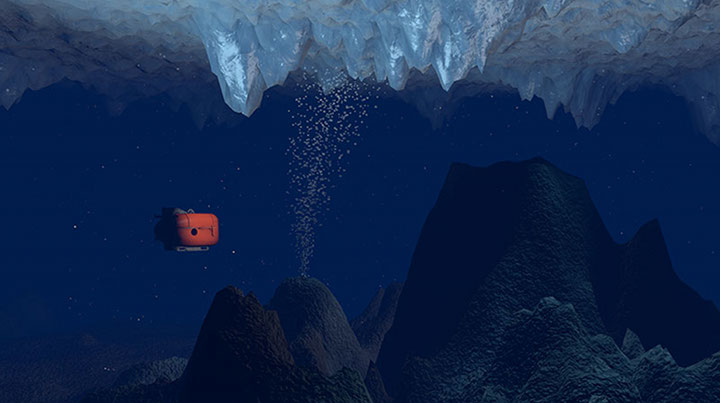
September-October 2019: From September 19-October 16, a team of oceanographers participated in a voyage of discovery to explore in detail for the first time a hydrothermal vent field in the Arctic Ocean.
Read more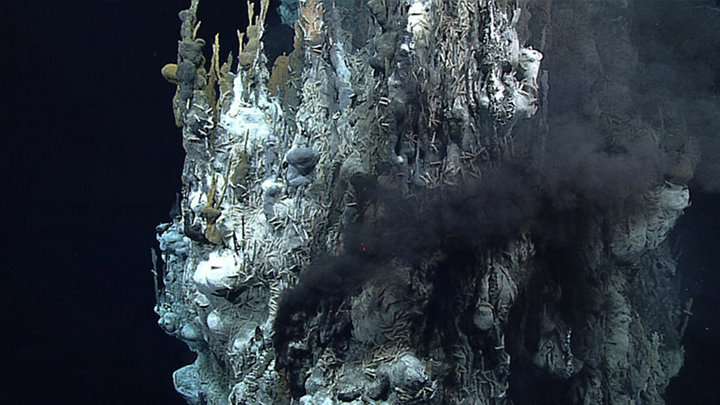
In 2016, NOAA and partners conducted a three-cruise expedition on NOAA Ship Okeanos Explorer to collect critical baseline information of unknown and poorly known areas in and around the Marianas Trench Marine National Monument and the Commonwealth of the Northern Mariana Islands.
Read more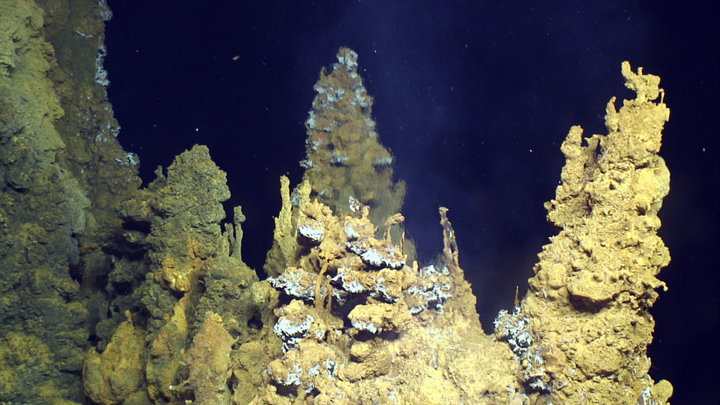
Scientists traveled to the Submarine Ring of Fire to study of iron-oxidizing bacteria at hydrothermal vents and explore how the emission of carbon dioxide from active submarine volcanoes acidifies the local marine environment and how that in turn affects the unique biological communities living around the vents.
Read more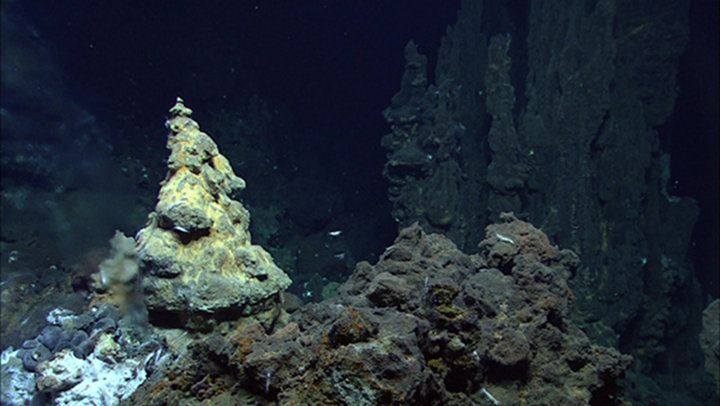
This expedition's region of exploration was the Northeast Lau basin, a zone where ocean plates both come together and separate at the highest rates on the planet.
Read more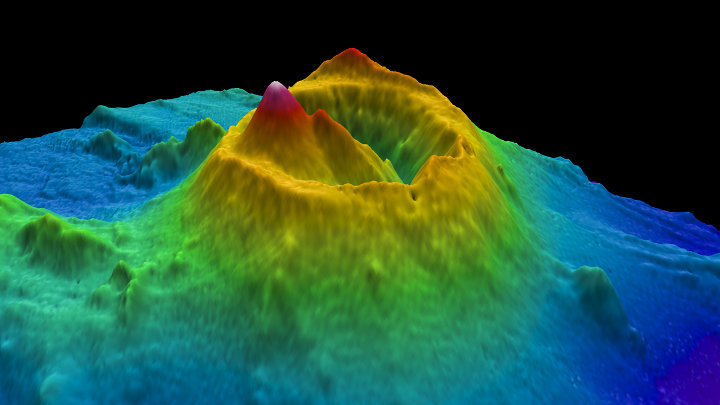
Scientists returned to the Kermadec Arc to explore the Brothers submarine volcano, marking the most comprehensive exploration of one of the most geothermally active arc volcanoes yet discovered.
Read more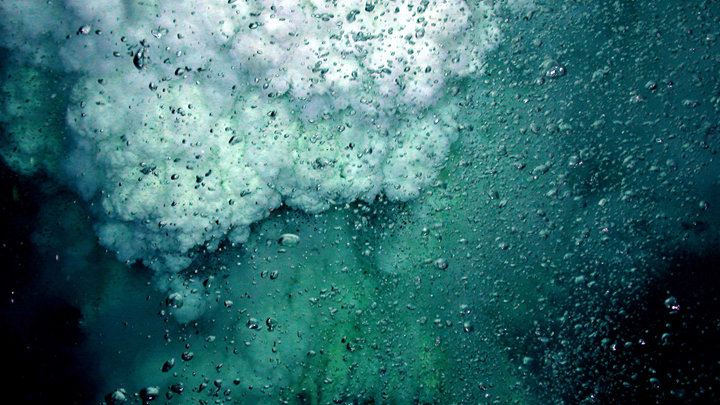
During this expedition, scientists discovered some amazing places, including an erupting volcano, liquid carbon dioxide venting, "black smoker" chimneys, and more than 12 new species of chemosynthetic organisms at hydrothermal vent sites.
Read more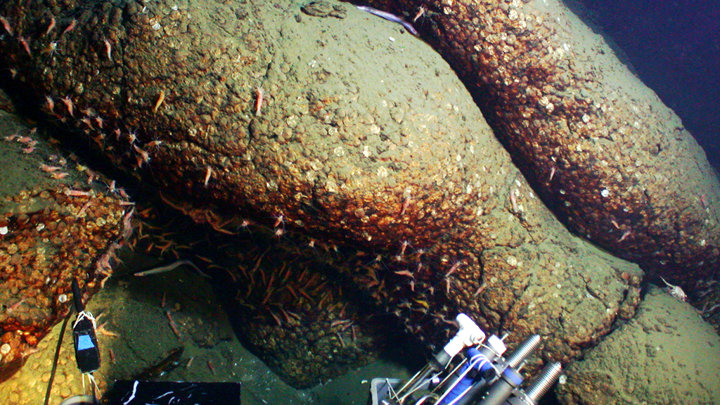
Scientists on this expedition explored active submarine volcanoes in the Kermadec Arc, located north of New Zealand, with a pair of manned submersibles.
Read more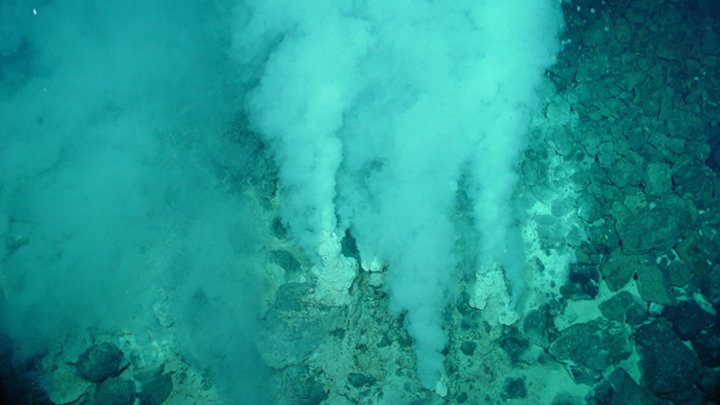
One of the main objectives of this expedition was to characterize the biology and chemistry of the hydrothermal systems at Mariana Arc volcanoes.
Read moreThe above items are only a selection of the educational materials highlighting hydrothermal vents and underwater volcanoes on our website.
View More